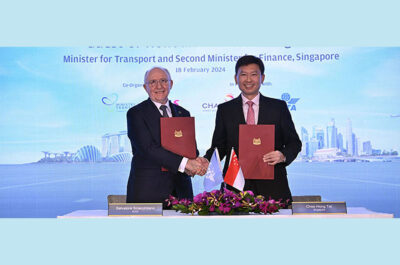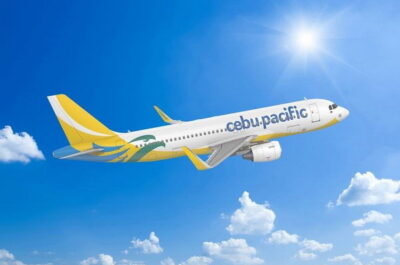…
The Michigan Department of Transportation (MDOT) and Indian Trails, Inc., have teamed up to install "hearing loop" technology on a fleet of 17 motorcoaches operating 34 scheduled routes that serve passengers throughout Michigan’s upper and lower peninsulas.
"I’m quite sure this is the first American bus line with hearing loops," says David G. Myers, a professor of psychology at Hope College in Holland, Mich., who has hearing loss and is one of the nation’s foremost advocates for hearing loops.
"The Indian Trails/MDOT installation of hearing loops on inter-city buses is a model of transportation accessibility for the entire country," adds Myers, who runs the website www.hearingloop.org.
The motorcoaches with hearing loops are operated by Indian Trails, Inc., a family business based in Owosso, MI, with a 100-year history of innovation. Previously, it was the first company to install two-way radios, video monitors, stereo sound systems, and WiFi on a fleet of buses.
For tens of thousands of Michiganders, the Indian Trails routes are their only way to connect with the national transportation network of airports, Amtrak, and Greyhound.
Hearing Loop Systems and Contacta, Inc., of Holland, Mich., assisted with the custom design and engineering of the loop systems.
"MDOT was excited about this opportunity to provide state funds to Indian Trails, to allow Indian Trails to make hearing loops available on a portion of its fleet and two inter-city bus stations," said Sharon Edgar, administrator, MDOT Office of Passenger Transportation. "MDOT and Indian Trails share a commitment to increasing the accessibility of our transportation system."
MDOT also installed hearing loops on a pilot basis at bus stations in Saginaw and Bay City.
Hearing loops are important to many of the estimated 1.4 million Michigan residents who currently have hearing loss, a number that is expected to double in 10 years. About 11 percent of the general population has significant hearing loss, and one-third of people 65 and older.
"This is proven technology that represents an enormous improvement in the on-board experience of many of our passengers who are hard of hearing," said Gordon Mackay, president of Indian Trails. "The cost was relatively low―about $800 per bus―and very little maintenance is needed. We would eventually like to see it installed in all of our motorcoaches and in all bus stations."
Hearing loops: Why and How
The inside of a bus, train, airplane or transportation terminal can be noisy enough that passengers with ordinary hearing aids can’t separate important public announcements from the sound of a crowd, a crying baby, background music, or nearby conversations. A hearing loop can make a dramatic difference, enabling most hearing aid wearers to clearly hear the PA system by broadcasting its sound directly into their ears.
Hearing loops are based on a simple technology that enables hearing aids equipped with "telecoils" or "T-coils" to amplify a single source of sound (telephone, television, PA system, etc.) instead of amplifying all sounds, as ordinary hearing aids do. Nearly 70 percent of hearing aids in the U.S. are already equipped with telecoils, which are just tiny coils of copper wire.
The hearing loop is a wire that runs around a space (living room, auditorium, church, airport terminal, or bus interior) and is attached to the sound source. The hearing loop transmits those sounds to the telecoil in a hearing aid electromagnetically, while surrounding noises are screened out.
"Because hearing aids work far better when a hearing loop is available, and because hearing loops are common in Great Britain, Scandinavia, Australia, and New Zealand, I’m often asked why more of them haven’t been installed in the U.S.," says Professor Myers. "The answer is that our federal disability laws require most public facilities with 50 or more seats to provide unspecified assistive listening devices―which they tend to do by letting visitors borrow earphones and pocket–size receivers that tune into FM broadcast signals or infrared waves."
"Most people with hearing loss won’t bother with those," he notes. "On the other hand, if a hearing loop is available, it’s easy for people to just flip a switch on their hearing aids in order to change to ‘T’ mode and get sound from the telecoil rather than through the normal ‘M’ or microphone mode. Moreover, rather than providing the same generic headset sound to everyone, hearing aids customize hearing loop sound output to suit one’s particular hearing needs."
Loop installations accelerating
Myers says that after years of campaigning for them, loop installations are picking up speed in Michigan and across the nation.
Hundreds of West Michigan facilities are now looped, including churches, auditoriums, libraries, and community centers, as well as DeVos Convention Center and Gerald R. Ford International Airport in Grand Rapids. So is the Breslin Student Events Center, home of Spartan basketball at Michigan State University, and the new Kalamazoo-Battle Creek Airport terminal.
A resolution by the Michigan Hearing Loss Association in 2002 helped advance the cause. It recommended "that Michigan’s public places, as defined by the Americans with Disabilities Act … install assistive listening systems that broadcast directly through hearing aids and cochlear implants," as loop systems do.
Nationally, a "Get in the Hearing Loop" campaign by the Hearing Loss Association of America and the American Academy of Audiology in 2010 prompted installations across the nation.
Notable examples in New York include the looping of the Metropolitan Museum of Art, more than 450 information booths in the city’s subway system, and all future new taxis (so passengers behind the partitions can better hear the drivers.) In Washington, D.C., Congressional hearing rooms are looped, as are several meeting rooms at the Library of Congress; so is the main chamber of the House of Representatives and the Holocaust Museum.
Indian Trails, Inc. operates one of the largest and newest fleets of deluxe motor coaches in Michigan. Services include charters, tours, shuttles, airport transfers, casino runs and daily scheduled routes throughout Michigan and into Chicago as well as Milwaukee.
Theodore is the Co-Founder and Managing Editor of TravelDailyNews Media Network; his responsibilities include business development and planning for TravelDailyNews long-term opportunities.

































































































































































































































